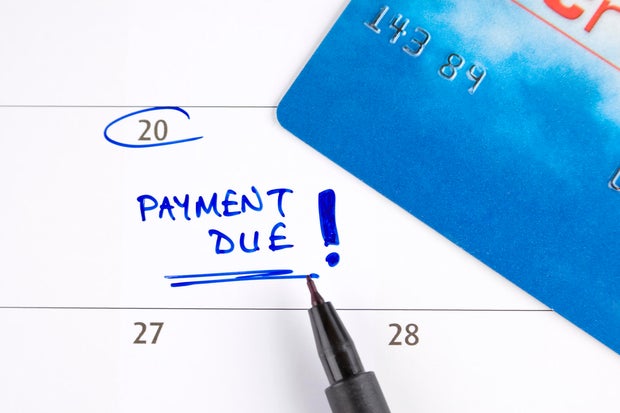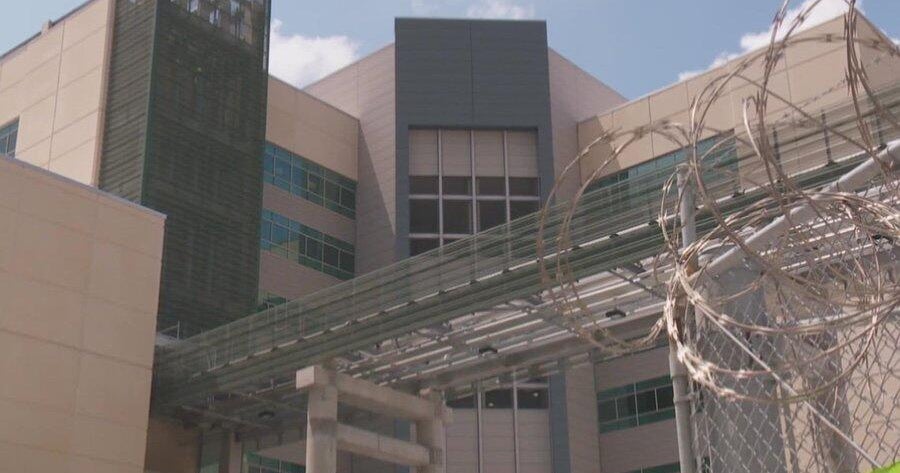 Before you stop making your credit card payments, be sure you fully understand the repercussions you could face for doing so.
Getty Images
Before you stop making your credit card payments, be sure you fully understand the repercussions you could face for doing so.
Getty Images
Americans are grappling with unprecedented levels of credit card debt right now, and it's taking a big toll on people's finances. According to the latest Household Debt and Credit Report, credit card balances dropped slightly to $1.18 trillion in Q1 2025 — down $29 billion from the end of 2024 — but they're still 6% higher than this time last year. And that's despite inflation cooling and the job market exceeding expectations over the last few months.
And, default rates have been rising recently, too. Over the past year, a growing number of cardholders have been missing payments and falling into serious delinquency. One of the issues is that the average credit card APRs remain close to 22%, which can cause the average cardholder's nearly $8,000 credit card balance to grow out of control quickly.
So when you add in the other economic hurdles, like today's elevated rate and price environment, it's hardly surprising that some borrowers wonder if they can legally stop paying their credit card debt. It's a tempting thought, but the legal and financial reality behind not paying your credit cards is complex and is often far more damaging than it may seem at first glance.
Learn how to settle your credit card debt for less than you owe now.
Can you legally stop paying your credit cards?The short answer is yes, you can legally stop paying your credit cards, as there are no laws in place that force you to pay your credit card bills. That doesn't mean you can stop without serious consequences, though.
Credit card debt is unsecured, meaning there's no collateral for the lender to seize like there is with a mortgage or auto loan. However, creditors still have several legal avenues they can take to recover unpaid balances, and the fallout from nonpayment can affect you for years. Here's what happens if you stop paying your credit cards:
Late fees and interest: Your account typically becomes delinquent after 30 days of nonpayment. At this point, late fees kick in, and your interest rate may increase significantly, often up to a penalty APR of 29.99%.Credit score damage: Once your payment is 30 days late, the creditor will report the delinquency to the credit bureaus. In turn, your credit score can drop by 100 points or more, depending on your credit profile. And, the longer the account remains unpaid, the worse the damage.Collection activity: Your creditor will likely charge off the debt and either assign it to or sell it to a third-party debt collector after 180 days of non-payment. You'll start receiving collection calls and letters, which can be relentless.Lawsuits and wage garnishment: Creditors or debt collectors may sue you in civil court. If they win, they can garnish your wages, levy your bank accounts or place a lien on your property, depending on your state laws.So while you won't be jailed for unpaid credit card debt — it's a civil matter, not a criminal one — the legal repercussions can still be financially devastating.
Chat with a debt relief expert about the options available to you today.
What to consider before you stop paying your credit cardsThere are legal and strategic options that can help you manage your debt without exposing yourself to lawsuits or long-term credit damage. So, if you're in a position where you feel like skipping payments is your only choice, be sure to explore these alternatives first:
Talk to your credit card issuerMany card issuers offer credit card hardship programs for cardholders who are going through tough financial times. These programs might temporarily reduce your minimum payment, lower your interest rate or waive fees. You'll typically need to call and explain your situation, and in some cases, provide documentation.
Look into credit counselingA credit counselor can help you develop a debt management plan that consolidates your payments and lowers the cost of your debt. As part of these plans, the credit counselor will try to work with your card issuers to lower interest rates and waive fees while allowing you to repay your full debt over three to five years.
Consider debt settlement (but be cautious)Debt settlement (also known as credit card debt forgiveness) involves negotiating with your creditors to accept less than what you owe. This option can offer significant relief when you can't keep up with your payments, but it usually requires that you stop making payments while you save up enough to offer a lump sum and complete the negotiation process. That, in turn, can severely damage your credit in the meantime.
Bankruptcy is a drastic move (but could be necessary)If your debt is truly unmanageable, filing for bankruptcy may be a legal way to wipe the slate clean. Chapter 7 bankruptcy can discharge credit card debt entirely, while Chapter 13 lets you repay some or all of your debt over a three- to five-year period. While bankruptcy can stay on your credit report for up to 10 years, for some, it's a faster path to financial recovery than drowning in payments indefinitely.
The bottom lineStopping credit card payments might seem like a way to take control of a spiraling situation, but it often leads to deeper financial and legal trouble. You can legally choose not to pay your credit cards, but that decision comes with a cost: damaged credit, persistent collection activity and potential lawsuits.
Before you let your accounts go delinquent, explore every available option. Call your creditor, speak with a credit counselor or consult a debt relief expert or bankruptcy attorney. There may be legal, structured ways to manage or eliminate credit card debt that won't involve risking wage garnishment or long-term financial fallout.
Angelica Leicht





